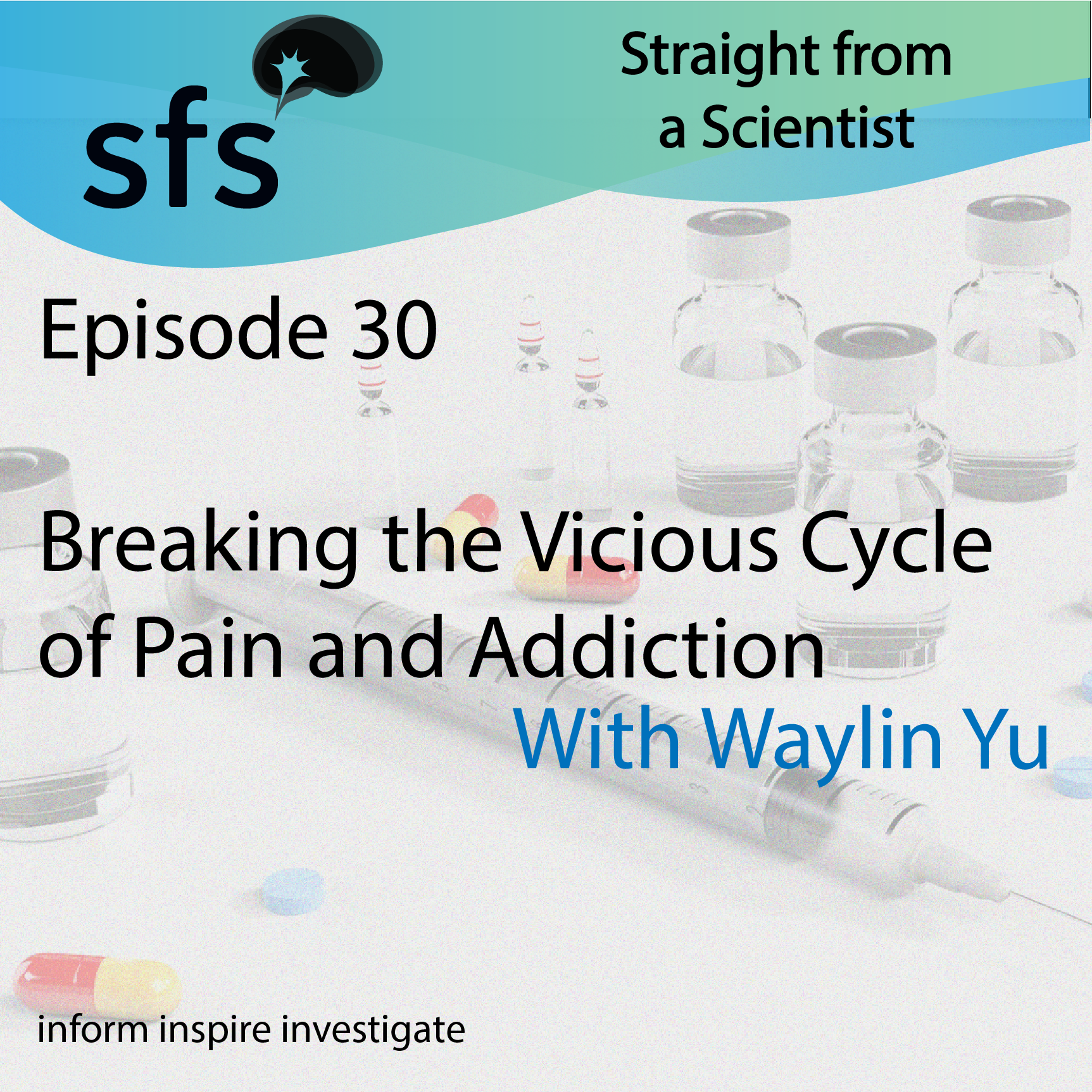Ep. 30: Breaking the Vicious Cycle of Pain and Addiction with Waylin Yu

b'
Connor Wander talked to Waylin Yu about his research in the overlap of pain, negative emotion, and addiction.\\xa0 Waylin studies the fundamental roles of neurons in different areas of the brain, such as the amygdala, that may be responsible for these reactions, both independently and in relation to each other.\\xa0 This includes chronic pain, anxiety, and alcohol and drug dependence, looking at activity in dopamine pathways, which play a role in reward-motivated behavior, and\\xa0GABA, an important inhibitory neurotransmitter.\\xa0
Hyperalgesia is an increased sensitivity to pain that can be caused by damage to neurons.\\xa0 Nociception is the response of the nervous system to pain and harmful stimuli.
About Waylin
Originally hailing from Northern California, Waylin ventured eastward into salmon shorts and Sperry country for his undergraduate studies, where he graduated from Colby College with a BA in Psychology and Neuroscience.\\xa0 There, he investigated the neuroprotective properties of choline in rodent models of depression and schizophrenia with Dr. Melissa J. Glenn.\\xa0 Currently pursuing a PhD in Pharmacology at UNC Chapel Hill, Waylin is researching the neural circuitry of pain, aversion, and addiction by applying cutting-edge techniques like optogenetics, in vivo calcium imaging, and electrophysiology towards circuit-specific manipulations.

Connect with Waylin on Twitter
Learn more
Find more information, publications, and Waylin\'s email address on the UNC Kash Lab website.
Read accessible psychology and neuroscience articles on the PsychNeuro Blog.
New project\\xa0Neurator Blog to be announced!
Reference papers
Alcohol dependence as a chronic pain disorder.
Dorsal raphe dopamine neurons modulate arousal and promote wakefulness by salient stimuli.
Contribution of dopamine receptors to periaqueductal gray-mediated antinociception.
\\xa0
Any other questions?\\xa0\\xa0Let us know!\\xa0 We appreciate your feedback.
You can now support the podcast at\\xa0https://www.patreon.com/sfspodcast.\\xa0 Many thanks to our past and present supporters!\\xa0
Thanks to\\xa0Plant Warrior\\xa0for their support.\\xa0 Use discount code SFS10 at checkout for 10% off your purchase of plant-based protein.
'
